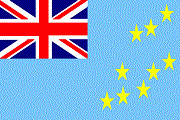Mr President, Excellencies
As Chair of the Pacific Islands Forum, I have the honour to deliver this statement on behalf of the 14 Member States of the Pacific Islands Forum with presence at the United Nations.
The Blue Pacific family, stands in solidarity with the rest of the world in fighting against the COVID-19 pandemic and we convey our profound condolences and prayers to those that have lost their loved ones.
This year is a remarkable one for women and girls as it marks the 25th anniversary of the Beijing Declaration and Platform for Action and the 20th anniversary of the UN Security Council Resolution 1325 on Women Peace and Security.
Accelerating the realization of gender equality and the empowerment of all women and girls - is everyone’s responsibility. We must strive to build back better as COVID-19 threatens our gains in gender equality and the empowerment of women and girls
Progress in the Region
For the Pacific Islands Forum, gender equality has been an important aspect of our Leaders agenda as a cross cutting issue with other fundamental priorities for our region such as climate change and sea-level rise. Pacific nations remain determined to accelerate the realization of gender equality, women’s political and economic empowerment, women’s leadership and eliminating all forms of violence against women, which are fundamental for transformative change, sustainable development and to ‘leave no one behind’.
In the past 25 years we have seen significant advancements in gender equality policies and legislation in the Pacific, including legislation to minimize the effects of gender-based violence on women and girls.
Several countries, have established national machineries to promote gender equality and are making commitments to integrate gender commitments across sectors through institutional mechanisms. Various, have or are exploring the establishment of national human rights institutes.
In education, countries have made commitments to universal access and initiatives to make curricula gender responsive – have started in a few countries but require ongoing investment and enhanced teacher training.
Key Challenges and Regional responses
Mr President,
Despite the achievements we have made in our region, our commitments to the Beijing Platform for Action comes with many trials. Pacific women’s participation in national decision-making processes remains limited, and in some cases even decreasing. Traditional social and cultural norms continue to be seen as barriers to women’s participation in the economy, public life and decision making.
Women’s economic empowerment in the Pacific is an ongoing area of work. We need to commit to transforming political culture, social norms and practices at both national and regional levels to ensure women’s full and meaningful participation.
Climate change presents the single greatest threat to the livelihood, security and wellbeing of the Pacific and its peoples. For women and girls, the effects of climate change are even greater. COVID-19 has increased the number of cases of violence against women and girls, including those with disabilities. Access to justice and sexual and reproductive health rights also remains a challenge.
Pacific Leaders have pledged to prioritise gender equality and end violence against women and girls through our Pacific Leaders Gender Equality Declaration and we seek the support of the international community and our development partners to work in partnership with us in progressing this commitment.
We strongly believe that committing to new and measurable concrete actions certainly demonstrate the political will and leadership to spur transformative change.
Way Forward
Mr President,
We call for:
- Continued support from the international community and development partners to address violence against women and girls;
- Global COVID-19 recovery efforts to build resilience to climate change, including strengthening women’s capacity to support disaster risk reduction and develop climate resilience;
- Global recovery efforts to COVID-19 that build health infrastructure and systems and social protection measures, towards equitable and inclusive access for women and girls.
We must continue to fight the good fight to counter the significant impacts of the pandemic on the livelihoods and wellbeing of women and girls globally. We must not lose sight of the reality that the pandemic does not diminish our lived experience with the devastating impacts of climate change.
We cannot do this alone! It is only through concerted efforts and genuine and durable partnerships that will guarantee the full, effective and accelerated implementation of the Beijing Declaration and Platform for Action and the gender-responsive implementation of the 2030 Agenda for Sustainable Development for all women and girls around the globe.
Mr President, Excellencies, I thank you. Fakafetai


